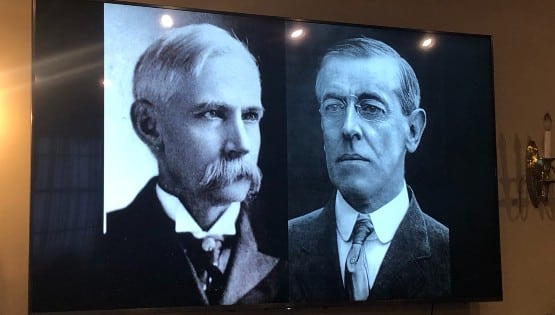
Following a vote in favor of the omnibus bill by the Senate Finance Committee earlier in the morning, the full House of Delegates voted unanimously for final passage of the plan this afternoon. Both votes featured broad bipartisan support, reflective of the cross-party coalition that has united around the governor’s proposal. The legislation, SB 1459 and HB 2510, is being patroned by Sen. Edd Houck (D-Spotsylvania) and Sen. Tommy Norment (R-Williamsburg) in the Senate, and Del. Kirk Cox (R-Colonial Heights) and Del. Rosalyn Dance (D-Petersburg) in the House.
“It is simple but true: to get a good job you need a good education. We are committed to putting in place the policies that will make the Commonwealth a job-magnet in the years ahead, and that starts with ensuring that we have a well-educated workforce,” McDonnell said.
“We are excited by the bipartisan support the Commission’s work and this legislation has received,” Virginia Secretary of Education Gerard Robinson said. “Today’s vote puts the Commonwealth on track to provide enhanced access and affordability for our youth to our institutions of higher learning. The business community’s support demonstrated at today’s meeting emphasizes the importance of more degrees to the Commonwealth’s employers who will provide future job opportunities for today’s youth.”
Highlights of the reform package
Economic opportunity and impact
- Provides a roadmap for achieving an additional 100,000 undergraduate (associate and bachelor’s) degrees for Virginians over the next 15 years by (1) increasing enrollment of Virginia students, (2) improving graduation and retention rates, and (3) assisting students with some college credit to complete degrees through public and private higher education institutions in Virginia.
- Focuses additional degree attainment in high-demand, high-income fields (e.g., STEM, healthcare) that are keys to top jobs in 21st Century economy. Provides for creation of a not-for-profit STEM public-private partnership to fully engage the business and professional communities in the strategic direction and promotion of STEM initiatives. Incentivizes public-private collaboration on STEM-related and other commercially viable research.
- Higher education’s return on investment is second to none. The Weldon Cooper Center’s study for the Virginia Business Higher Education Council shows that every 1 dollar currently invested in Virginia’s public higher ed system yields 13 dollars in increased economic output. College graduates on average earn twice as much as those without college degrees.
Reform-based investment
- Provides for sustained reform-based investment and innovation in delivery of higher education services, as well as extending college degree opportunities to more citizens in creative, cost-effective ways. Institutions’ six- year plans will address strategies and use of incentives for year-round use of physical facilities and instructional resources, technology-enhanced instruction and resource-sharing across the higher ed system, innovative and economical degree paths, ongoing restructuring and managerial reforms
- Reverses the dramatic funding reduction cycle to higher education through a new comprehensive funding model framework with four components: basic operations and instruction; enrollment growth funding; need-based financial aid (for low- and middle-income families); and financial incentives to promote innovation and increased economic impact.
- Establishes a comprehensive and streamlined six-year planning process to aid college, university, and executive and legislative branch officials in implementing the long-term policies of the “Top Jobs” Act and in improving coordination among institutions and the Commonwealth.
- Creates a collaborative Higher Education Advisory Committee consisting of executive and legislative branch representatives and representatives of higher education institutions to develop performance criteria for incentives, institution-specific base funding policies, economic opportunity metrics for degree programs, opportunities for additional, cost-saving managerial autonomy and efficiency reforms, and other key policies.
Affordable access
- Provides enrollment-based funding to increase access for qualified Virginia students at public and private colleges and universities.
- Enhances long-term affordability through a three-prong strategy: (1) puts in place a model for stable and predictable state funding support, relieving the upward pressure on tuition over time as state funding rebounds; (2) provides for development of need-based financial aid options aimed at middle-income as well as low-income families; (3) creates a Revenue Stabilization Fund (higher education rainy-day fund) to help buffer higher education funding against future cuts that produce sudden and sharp tuition spikes during economic downturns.
Edited by Chris Graham. Chris can be reached at [email protected].










